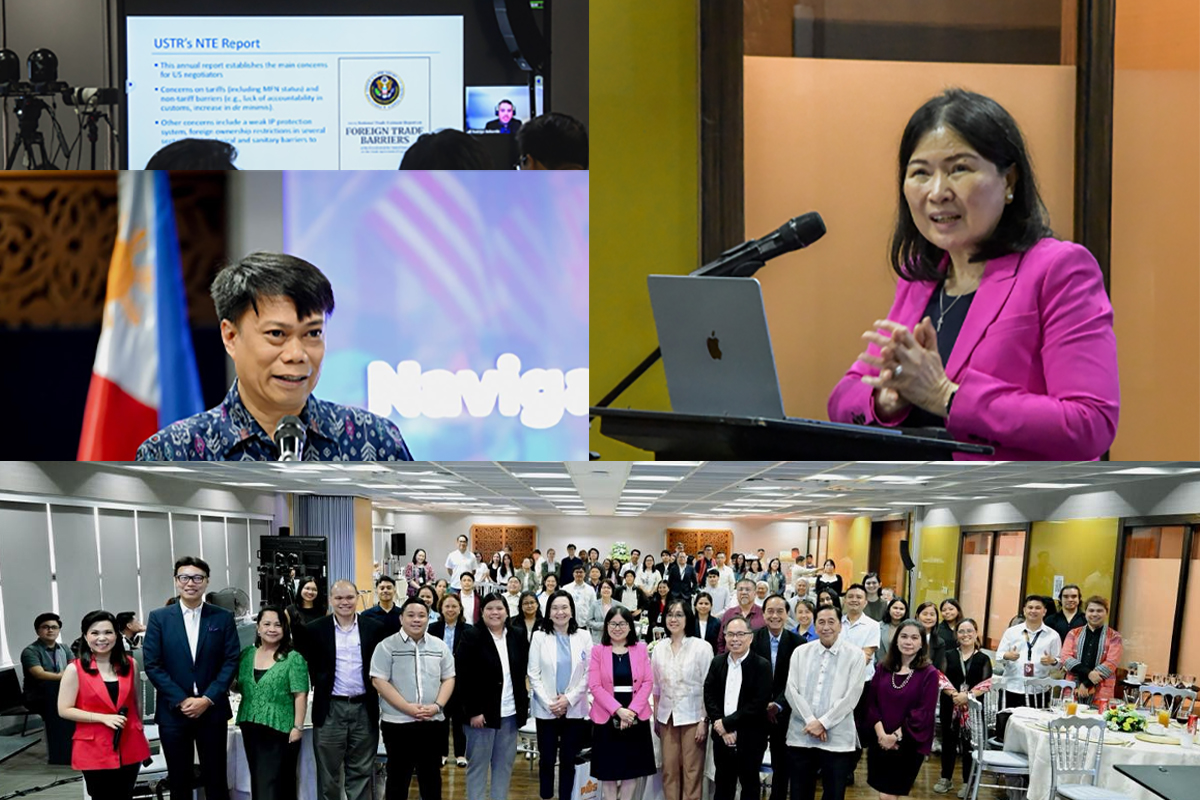MANILA, Philippines (Update 1, 5:34 p.m.) — Arsenio Balisacan will return to his old post as the government's chief socioeconomic planner and fill a crucial spot in the economic team of Ferdinand “Bongbong” Marcos Jr., presumptive president-elect.
A few moments after Marcos publicly announced that he had asked Balisacan to join his government, incoming Executive Secretary Vic Rodriguez told reporters in a separate message on Monday that Balisacan has already accepted the offer to head the National Economic and Development Authority, the state's socioeconomic planning agency.
Balisacan served as the director-general of NEDA under the late President Benigno Aquino III's government. As NEDA chief, he was the board chair of the Philippine Institute for Development Studies, a state-backed think tank, and was the chair of the Philippine Statistics Authority and the Public-Private Partnership Center of the Philippines.
As for the rest of the economic team, Marcos admitted he needs a “few more days” to complete them.
“I have also tapped an old friend who’s formerly in this position, Arse Balisacan, who is our former NEDA and I’ve asked him to return to NEDA,” Marcos told reporters in a briefing, adding that "it seems like our thinking align on our approach in the coming years."
“We’re working very hard on the other departments and slowly, we are beginning to fill the positions, I still have to talk to them some of our proposed nominees and we have to understand that we agree on policies,” Marcos added.
Balisacan will succeed Karl Kendrick Chua, who served at the Department of Finance under the Duterte administration before joining NEDA when Ernesto Pernia left his post at the height of the pandemic.
Under Chua’s watch, the government accelerated the implementation of the Philippine Identification System amid the pandemic. He also pushed for the easing of the country’s protectionist policies in hopes of attracting more foreign investors.
At a May 12 press conference following the release of forecast-beating economic growth in the first quarter, Chua said he was hoping that the next administration would continue the reforms of President Rodrigo Duterte, including the Rice Tariffication Law that Marcos wants to amend.
Challenges
As it is, shoring up the economy to recovery would be the next president’s hardest task. Marcos would inherit a government balance sheet with a large budget deficit and debt pile. At the same time, unemployment remains high while an uncomfortably elevated inflation is emerging as a major growth spoiler.
All these problems would test Balisacan, who has a long storied career in public service and academia.
He was an economist for the World Bank in Washington in the United States before he joined the University of the Philippines faculty.
Balisacan teaches at the UP School of Economics, previously serving as a dean years after he joined the UP faculty in 1987. He was also a director and chief executive of the Southeast Asian Regional Centre for Graduate Study and Research in Agriculture. Prior to teaching in UP, Balisacan was a research fellow at the East West Center in Honolulu.
From 2000 to 2001, Balisacan briefly served as undersecretary for policy and planning at the Department of Agriculture. At the time, he was the country's chief negotiator in the Agriculture Negotiations of the World Trade Organization.
His last appointment was as the first chief of the country's antitrust watchdog, the Philippine Competition Commission, under Duterte's administration.
According to the PCC website, Balisacan "has authored and co-edited seven books and published, both locally and internationally, close to 100 academic papers and book chapters on various development issues, particularly on the Philippines and East Asia.”
Balisacan, a lifetime member of the National Academy of Science and Technology, finished his undergraduate science degree in agriculture from Mariano Marcos State University. He got his Master of Science in Agricultural Economics from the University of the Philppines-Los Baños, and completed his Doctor of Philosophy in Economics from the University of Hawaii.
Sought for comment, Zy-za Suzara, executive director of the Institute for Leadership, Empowerment, and Democracy (iLEAD), a policy think tank, believes Balisacan has “left a good economic legacy during the Aquino administration.”
Balisacan was “instrumental in reviving the Philippine economy from being the ‘Sick Man of Asia’ to being ‘Asia’s Bright Star’ when he left office. Unfortunately, that was not sustained,” Suzara added.
Leonardo Lanzona, an economist at Ateneo De Manila University, agreed with Suzara that Balisacan was a great choice for NEDA.
But Lanzona added: “Despite a strong and highly capable economic management team, the political leadership remains questionable. In particular, cronyism, a hall of the Marcos dictatorship, is likely to be resurrected especially as political supporters are waiting to be rewarded for their campaign contributions. Unless there is a major effort to remove corruption from the very top, no management team, regardless of their expertise, will be able to change this increasing fragile economy.”












